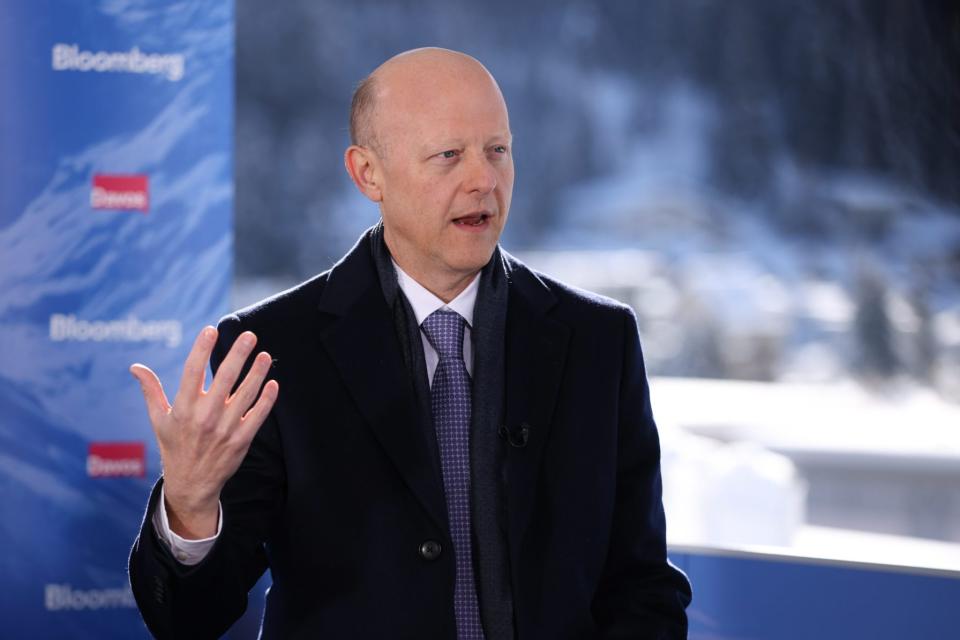Circle tries again for an IPO but still faces an uphill climb

Reporting on Circle can feel a bit like Groundhog Day, the Bill Murray classic where the same pattern of events plays out day after day—or in Circle's case year after year. In the latest bit of deja vu, the stablecoin issuer filed to go public last week with the hopes its flagship USDC token is finally ready to take its place as a pillar of mainstream finance.
Veteran crypto watchers will recall seeing this movie in 2021 when Circle announced plans for an IPO by means of a SPAC, a once-trendy gimmick that involved "blank check" shell companies going public with the sole purpose of acquiring another company. In Circle's case, it sought to get acquired by a shell outfit called Concord Acquisition at a valuation of $9 billion.
Things turned sour, however, after the 2021 bubble popped and crypto entered a brutal downward spiral culminating in the collapse of Sam Bankman-Fried's empire of fraud late the following year. Around this time, SPACs came to acquire a shady reputation that saw them fall out of favor with investors and regulators. All of this, combined with unprecedented regulatory scrutiny of the crypto industry, led Circle and Concord to cancel their wedding plans in December of 2022.
Now, the crypto market has bounced back and Circle's ever-optimistic CEO Jeremy Allaire is betting the time is right for a second try at going public. This time, the company is doing a conventional IPO but is availing itself of an option to keep the details confidential, meaning we don't know what valuation Circle is seeking, or much else—other than that the filing appears timed to coincide with Davos, where bankers and investors like to wheel and deal.
Circle did put out an annual USDC report on Monday that, unsurprisingly, offered rosy stats on its stablecoin business, including that the number of USDC wallets containing $10 or more has grown 59% year over year to around 2.7 million. That sounds promising, as does an uptick of USDC activity in Asia, where Circle says people are using it for remittances and other transactions rather than for crypto speculation.
If you want a less optimistic stat, consider that Circle's market cap declined from $45 billion to $25 billion in 2023, and that one estimate found that transaction volume dropped from $4.5 trillion to closer to $3.5 trillion. Those sorts of declines are not typically what investors want to see from a company seeking to go public, but, as has been the case since its early days, Circle is betting that good times are just around the corner.
For nearly a decade now, Allaire has cast Circle as the rare crypto firm that the U.S. government can love, one that will always play by the rules. In recent months, the company has pushed the narrative that Congress is on the cusp of passing stablecoin legislation that will pave the way for mass USDC adoption by banks and institutions. This sounds good, but the argument that friendly regulations are coming feels like the crypto version of Groundhog Day.
Unfortunately for Circle, the reality is that Congress has become more dysfunctional than ever while the White House continues to take its financial policy cues from progressive Sen. Elizabeth Warren (D-Mass.), who hates crypto with the fire of a thousand suns. This means the U.S. is likely to limp along without a rational stablecoin regime even as Circle's giant, unregulated rival Tether—which was just singled out for money laundering in a new UN report—continues to swell. The bottom line is that, barring an unexpected breakthrough in Washington, D.C., the 2024 version of "Circle goes public" may turn out to have an all-too-familiar plot of dreams deferred.
Jeff John Roberts
jeff.roberts@fortune.com
@jeffjohnroberts
This story was originally featured on Fortune.com

 Yahoo Finance
Yahoo Finance 